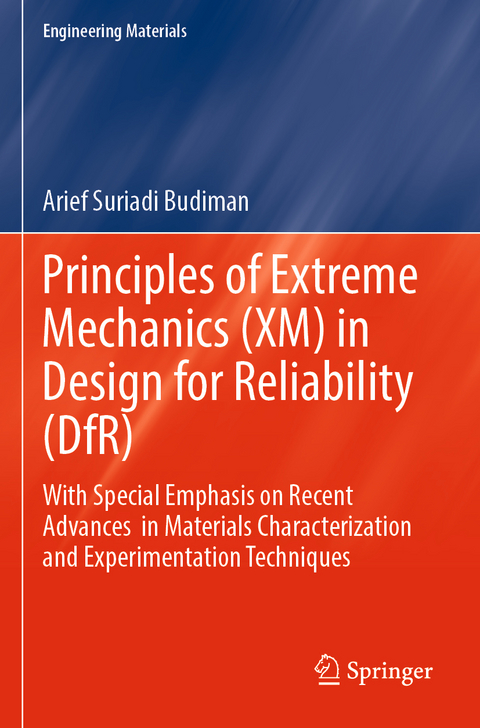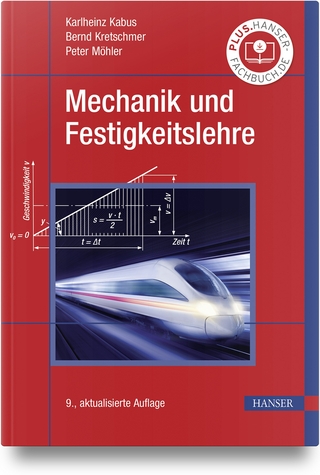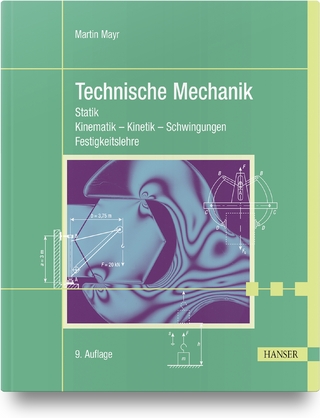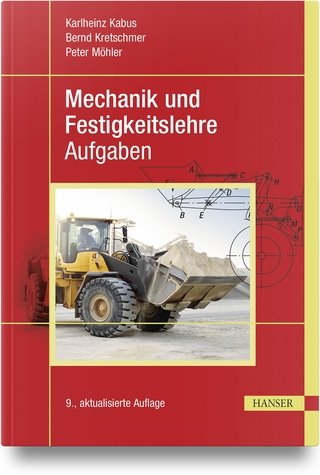
Principles of Extreme Mechanics (XM) in Design for Reliability (DfR)
Springer Verlag, Singapore
978-981-15-6722-3 (ISBN)
This book addresses issues pertinent to mechanics and stress generation, especially in recent advanced cases of technology developments, spanning from micrometer interconnects in solar photovoltaics (PV), next-gen energy storage devices to multilayers of nano-scale composites enabling novel stretchable/flexible conductor technologies. In these cases, the mechanics of materials have been pushed to the extreme edges of human knowledge to enable cutting-edge, unprecedented functionalities and technological innovations. Synchrotron X-ray diffraction, in situ small-scale mechanical testing combined with physics-based computational modeling/simulation, has been widely used approaches to probe these mechanics of the materials at their extreme limits due to their recently discovered distinct advantages. The techniques discussed in this manuscript are highlights specially curated from the broad body of work recently reported in the literature, especially ones that the author had led thepursuits at the frontier himself. Extreme stress generation in these advanced material leads to often new failure modes, and hence, the reliability of the final product is directly affected. From the recent topics and various advanced case studies covered in this book, the reader gets an updated knowledge of how new mechanics can and has been applied in Design-for-Reliability (DfR) for some of the latest technological innovations known in our modern world. Further, this also helps in building better designs, which may avoid the pitfalls of the current practiced trends.
Dr. Arief Suriadi Budiman received his B.S. in mechanical engineering from Institute of Technology, Bandung (ITB), Indonesia, M.EngSc. in materials engineering from Monash Univ., Australia, and Ph.D. in Materials Science and Engineering from Stanford University, CA, in 2008. During his doctoral candidacy at Stanford’s Department of Materials Science & Engineering under the supervision of Professor William D. Nix (MRS Von Hippel Award 2007), he received several research awards (MRS Graduate Silver Award 2006, MRS Best Paper 2006) and contributed to several high-impact journal publications (Acta Materialia, Applied Physics Letters, Journal of Electronic Materials). As a graduate student, he gave two symposium invited talks as well in the MRS spring and fall meetings in 2006. More recently, he has been awarded the prestigious Los Alamos National Laboratory (LANL) Director's Research Fellowship to conduct top strategic research for the energy and national security missions of the Los Alamos National Laboratory. At the Center for Integrated Nanotechnologies (CINT) at Los Alamos, his research program involves nanomaterials for extreme environments with potential applications in advanced energy systems including for next-generation nuclear power reactors. He has been active in MRS throughout his professional career – from winning an MRS Graduate Student Silver Award in 2006 as a Ph.D. student to organizing various symposia (Mechanical Behavior of Nanostructured Composites, Advances in In Situ Experimentation Techniques Enabling Novel and Extreme Materials Design) in MRS Spring meetings in the USA, as well as ICMAT (International Conference of Materials in Advanced Technologies) organized by MRS-Singapore Chapter. He most recently led as the symposium chair in MRS (Materials Research Society) Spring 2019 Meeting in Phoenix, AZ, and concurrently served as Lead Editor of a Focus Issue of Journal of Materials Research on the topic of “Plasticity and Fractureat the Nanoscales” published in May 2019. His involvement in other materials and technology societies includes TMS (The Mineral, Metals and Materials Society) and AVS (American Vacuum Society), where he served as Co-Chairs in various symposia in TMS and as Members of the Board of Directors for the AVS TFUG (Thin Films Users Group). Additionally, he serves on the editorial board of the Journal of Electronic Materials. He has authored over 80 refereed scientific papers, conference articles, books, book chapters and patents. Dr. Arief Suriadi Budiman is currently leading a dynamic, international group researching nanomaterials and nanomechanics and their implications for extending the extreme limits of materials as well as their applications in the next-generation energy technologies (solar PV, extreme environments, energy storage, etc.). His work has also recently received the famed Berkeley Lab Scientific Highlights twice in May 2010 and June 2013 (the latter was forhis novel, innovative characterization technique that enables thin silicon solar PV technology). He also recently served an academic stint at MIT (Massachusetts Institute of Technology) in Boston, MA, as part of a faculty immersion/training exchange to conduct research in energy (Solar PV, as well as next-generation energy storage/Li-ion). In Singapore, he is currently running a multi-million dollars research grant program on enabling ultrathin (< 80 micron) silicon solar cells, tunable impact resistance of novel materials design enabled by additive manufacturing as well as novel metallic stretchable conductor technology for next-generation biomedical/healthcare flexible/wearable devices sponsored by the National Research Foundation (NRF), Ministry of Education (MOE) and other premier funding agencies of the Singapore’s Government. He has been invited to give invited lectures/seminars on his research program in various top international scientific/technological conferences. He hasauthored/co-authored several high-impact journal publications (Acta Materialia, Solar Energy Materials & Solar Cells, Progress in Photovoltaics, Materials Science Engineering A, Materials, etc.). He has also recently published a book “Probing Crystal Plasticity at the Nanoscales – Synchrotron X-ray Microdiffraction” (Springer 2015). He has two U.S. patents and one pending.
1. Introduction.- 2. Mechanics of Materials.- 3. Reliability of Devices, Technologies and Systems.- 4. Advanced Micro/Nanoelectronics, Microsystems and MEMS Devices and Technologies.- 5. Next Generation Energy Technologies and Systems.- 6. Conclusions.
| Erscheinungsdatum | 17.11.2022 |
|---|---|
| Reihe/Serie | Engineering Materials |
| Zusatzinfo | 88 Illustrations, color; 25 Illustrations, black and white; XI, 247 p. 113 illus., 88 illus. in color. |
| Verlagsort | Singapore |
| Sprache | englisch |
| Maße | 155 x 235 mm |
| Themenwelt | Naturwissenschaften ► Physik / Astronomie ► Mechanik |
| Technik ► Maschinenbau | |
| Schlagworte | Material Mechanics • Micro Stress Generation • Nano-device Reliability • Non-Destructive Stress Measurement • Stress-Induced Failure • synchrotron X-ray diffraction • X-ray Micro-diffraction |
| ISBN-10 | 981-15-6722-0 / 9811567220 |
| ISBN-13 | 978-981-15-6722-3 / 9789811567223 |
| Zustand | Neuware |
| Haben Sie eine Frage zum Produkt? |
aus dem Bereich


